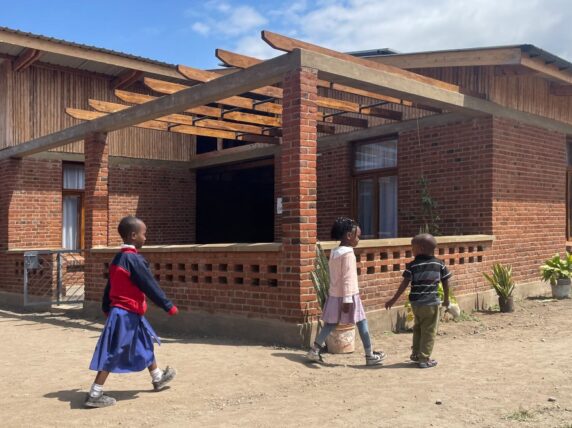Approaches to locally led development in the UK and how it applies globally
We are witnessing a moment of changing trends in philanthropy worldwide, and ample conversation around racial justice and lived experience leadership in philanthropic efforts.
In this piece, we look at some of the systemic problems that have contributed towards this turning point in our mindset.
Equity, diversity and inclusion in philanthropy
In 2019, a slide from a Citizens Advice training session appearing to promote racist stereotypes sparked a conversation about the lack of diversity and inclusion in the UK social sector. The consequent #charitysowhite campaign demonstrated the deeply entrenched and systemic problem of racism in the sector.
The underlying assumptions mirror the notions that underpinned colonisation as a civilising mission. The global north-south divide replicates itself, with predominantly white, middle/upper class male leadership dictating the development work that is meant to serve global majority communities.
The COVID-19 crisis’ disproportionate impact on BAME communities exacerbated the need to focus social sector funding through a racial justice lens. At a time when the charity sector was expected to lose £4 billion in funding, the Conservative government had announced a £750 million support package. Out of the 9,000-10,000 BAME charities in the country, 65% reportedly have a turnover of less than £10,000 annually, which meant they were the worst affected. Simultaneously, the pandemic placed BAME people, including frontline workers at the highest risk of mortality and morbidity . This, alongside the Black Lives Matters protests of June 2020, paved the way for a national conversation on institutional and structural racism in the UK.
What is participatory grant making?
There has been a gradual acknowledgement regarding the need to shift power back to communities in order to drive systems change and promote self-growth. Participatory grant making (PGM) has proven to be an interesting model for this. Simply put, PGM is a funding model wherein community members with lived experience of issues make funding decisions. This differs from traditional philanthropy, which tends to assume that charity boards and trustees know how best to support community development, by prioritising lived experience and community knowledge instead.
This approach is not wholly new and can be traced back to work done by the the Funding Exchange pushing for more progressive philanthropic practices. The participatory grant making community of practice currently has 73 member organisations worldwide, advocating for participatory approaches within the social sector and leading by example on such philanthropic change.
Set up as a participatory funder in 2017, Camden Giving has placed participatory, locally led approaches at the heart of everything it does. By working with community residents across Camden, who have lived with inequality, the organisation has devolved its grant making. Camden Giving also works with a place-based lens. This approach not only recognises that there are no ‘one-size fits all’ solutions to specific development challenges, but also empowers local communities to be involved in decisions which impact them. The London’s Giving network also comprises 14 active schemes that are working on place-based giving for community development.
Why Camden?
Camden is home to some of the UK’s biggest corporations and wealthiest properties, right alongside communities facing high levels of deprivation. With a 41% poverty rate, 12.2% of its residents living on low pay, and the worst housing affordability in London, it is a borough of two halves.
In recognition of this, Camden Giving’s work has been focused on fostering cross-sector collaborations, giving community residents the power to fund grassroots work that can positively impact their lives, facilitate sharing of space, skills, and resources, and build an equitable borough for all.
With a growing alumni network of grants panellists, 70% of whom are from global majority backgrounds, making all decisions on project funding over the last seven years, Camden Giving has awarded £6.7 million to citizen grantees and grassroots organisations. This funding supports a range of work on racial justice, disability rights advocacy, and the Camden renewal missions of food security, opportunities for young people, diverse leadership, sustainable neighbourhoods and stronger communities.
Participatory development in practice
Camden Giving’s data and community knowledge work is also led by its panellists and alumni. This includes conducting grantee reporting on funded projects and citizen-led community research on issues such as structural racism. These research insights, integrated with public data, are presented to panels to inform their decision-making. For instance, the 2022 research on structural racism in Kilburn highlighted the dearth of community infrastructure in the ward. This pushed grants panelists to fund more Kilburn-based projects.
In response to rising youth poverty and violence in Camden between 2019-2023, 96 grants have been awarded to projects harnessing the power of sports for youth empowerment. This has helped fill in the gap created by cuts to community services since after COVID. Several CG staff members cite this as something that they wouldn’t necessarily have expected from the onset of their work.
Owing to rising costs of living in 2022, in partnership with the Council, £112,599 was awarded to 17 organisations working on food security. Many of the community panellists had lived experiences of food insecurity and there was a shared community knowledge of organisations doing work in the area. The funding decisions were made by those who had their best community interests at heart. The success of these grantees and their growth stories bear testimony to the power of locally led development in Camden.
There have also been multiple citizen-led projects with young men of colour helping other young men of colour through training and employment support. Several panellists have emerged as advocates for participatory grant making themselves by referring other community residents to get involved.
Ways Forward
Organisations like the Bristol Food Fund, Two Ridings Community Foundation and Islington Giving have been adopting participatory models in aspects of their grant making. BBC Children in Need have also run a similar pilot program.
By shifting power and resources within communities facing disparities, participatory grantmaking tackles systemic challenges to inclusion and equity. It empowers people, who are generally underrepresented in the leadership echelons of traditional philanthropy, to make decisions about community needs.
Whether it’s young people or those from global majority backgrounds – it shifts the power balance shaping the charity sector. As my colleague Lucy White, Head of Partnerships at Camden Giving, recently said – “One of the most fulfilling moments I have when pitching for funding and explaining PGM to someone outside the sector is that they look slightly confused, and ask me ‘isn’t that always how funding is decided?”
We at Camden Giving look forward to the day it is.
Category
News & Views



